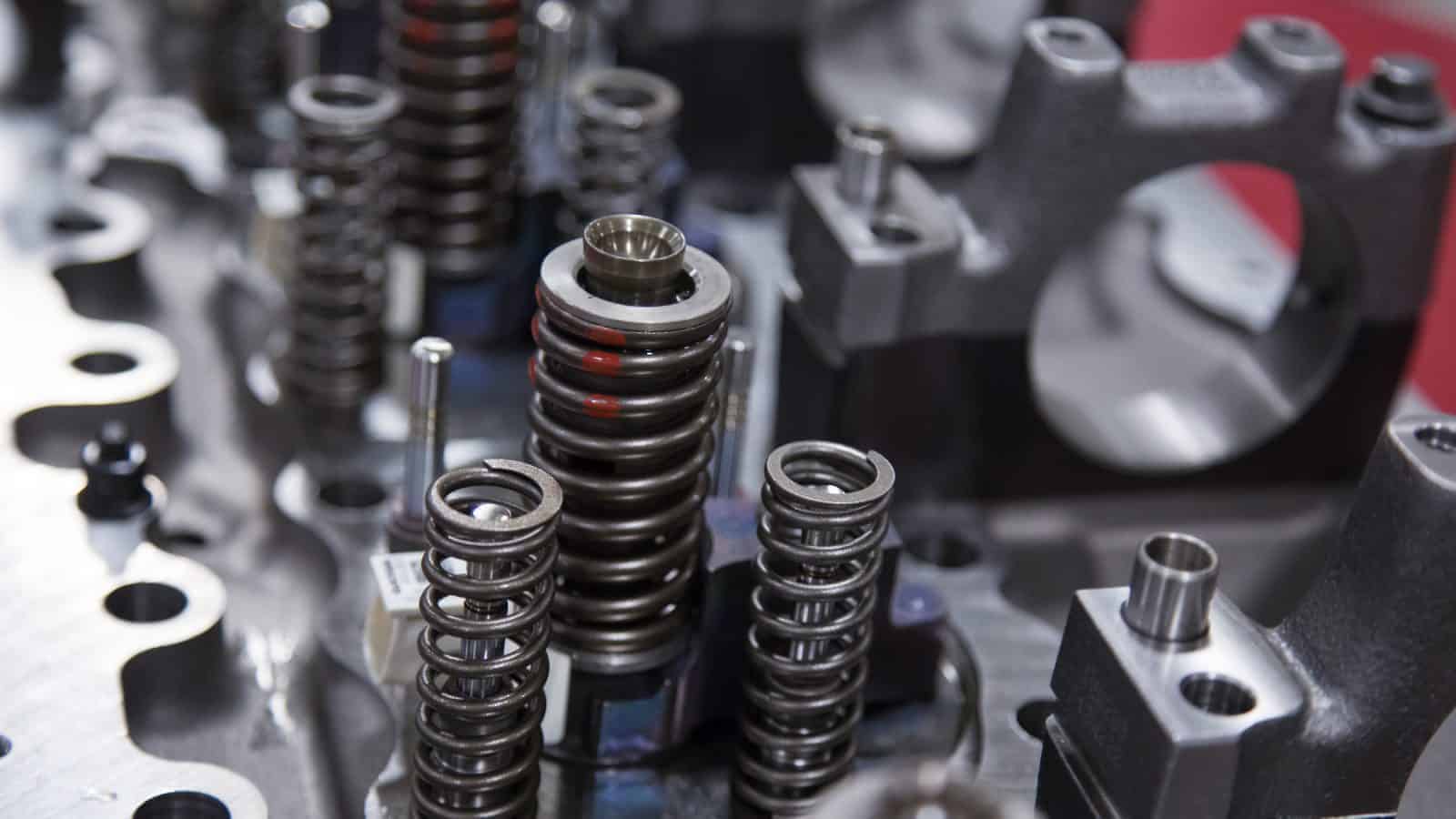Worldwide COVID-19 Cases Reach 20 Million

Worldwide cases of COVID-19 have reached 20 million, according to the World Health Organization, with nearly 750,000 deaths. WHO Director-General Tedros Adhanom Ghebreyesus said at a press conference that there were still “green shoots of hope,” citing successful control measures in South Asia, New Zealand and more recently Europe.
Here are some other data points as we move through yet another month of the pandemic:
The U.S.: New COVID-19 cases in America totaled less than 50,000 for the second day in a row yesterday. Meanwhile, the country has 5.1 million confirmed cases overall. Some good numbers, courtesy of Johns Hopkins University:
- The seven-day average of new cases was well below the two-week average, at 54,409 compared to 57,433. That’s a sign that new cases are declining across the nation.
- The one-week average was below the two-week average in a clear majority of states (37).
- Deaths, meanwhile, are pretty similar for the one-week and two-week averages (1,051 and 1,049, respectively). Unfortunately, a handful of states are showing a rising death rate.
Children: COVID-19 cases among American kids are rising markedly, according to a new study.
- The number of cases in the last two weeks of July make up a full quarter of all children’s cases since March.
- While kids make up only 8.8% of cases nationwide now, they were only 2% back in April.
A caveat: researchers aren’t sure whether this rise is a product of increased infections or improved testing capacity. And fortunately, children make up only a small proportion of hospitalizations. But this data is at least concerning, as many of the nation’s children prepare to head back to school.
Vaccine Trials Face Diversity Issues
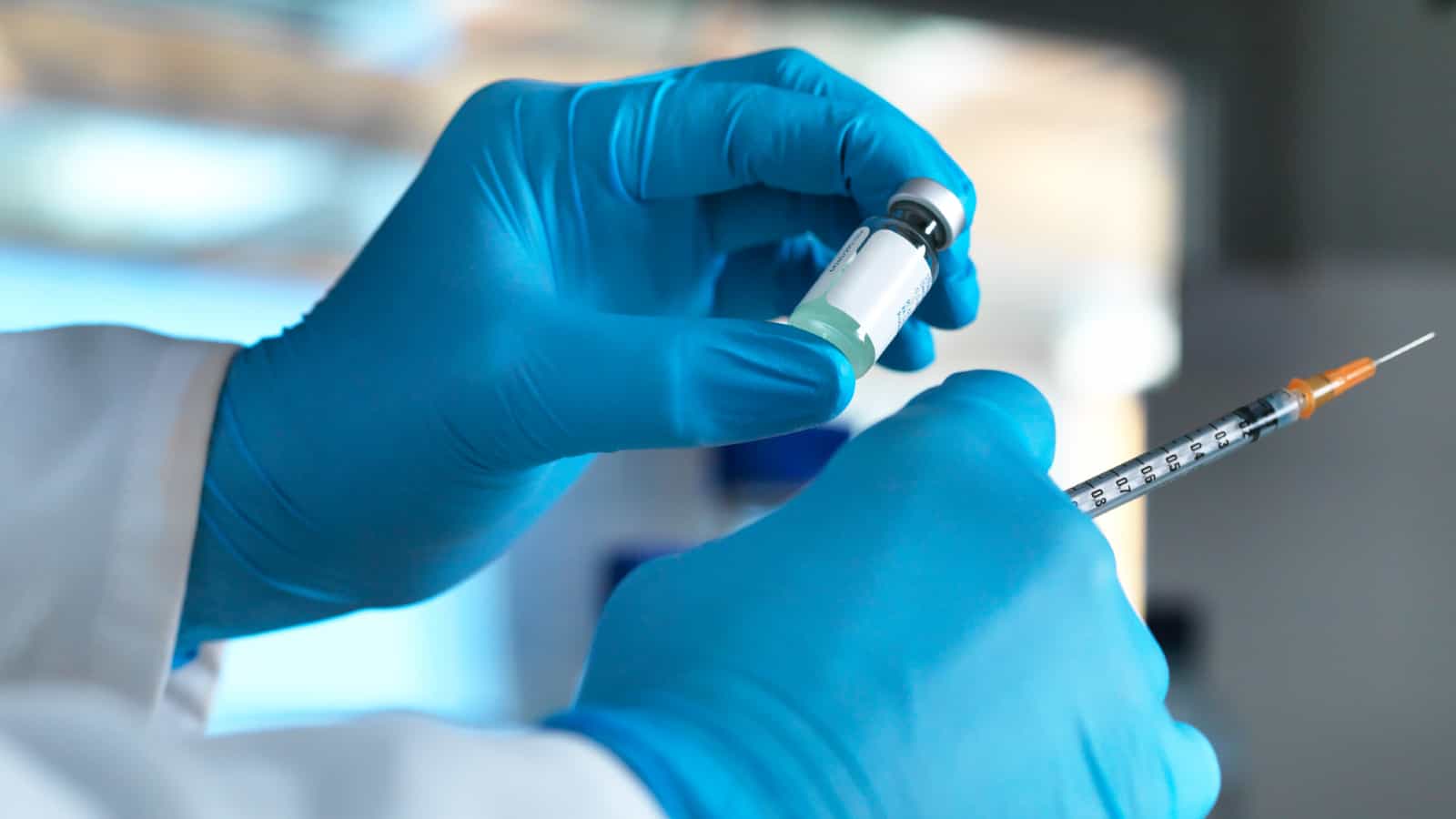
As American companies race to create an effective COVID-19 vaccine, they’re facing skepticism from minority communities, according to The Wall Street Journal (subscription).
The problem: This reluctance makes it especially difficult to create diverse clinical trials that gauge whether the vaccines work safely. Public health officials say that vaccines need to be shown to work safely and effectively across all ages, races and backgrounds, and especially among the high-risk. Black and Brown Americans have been impacted disproportionately by the virus—and without their participation, an effective vaccine may face longer odds.
The solution: Companies and researchers are working with churches, minority physicians, radio programs and other media sources for communities—not to mention recruiting in places with high minority populations.
The bigger picture: Clinical trials in general suffer from a shortage of minority participants. Only 9% of participants in clinical trials for new drugs last year were Black, while whites made up around three quarters of participants, according to the FDA.
- The good news: Many pharma companies recognize the problem and are working to increase the diversity of their trials—including Amgen Inc., Genetech Inc. and Eli Lilly and Company, to cite just a few.
A Roundup of COVID-19 Vaccine News

With vaccines being developed as fast as possible, we can barely keep up or keep you up to date. Here are some major stories this week:
- New experimental vaccine studies from the pharmaceutical company Novavax are promising, reports The New York Times (subscription). One study saw the vaccine produce a high level of antibodies against the virus with no harmful side effects, while the other found that the vaccine strongly protected monkeys from COVID-19 infections.
- Moderna is setting prices for its vaccine candidate, reports Reuters.
- Johnson & Johnson announced a deal with the United States to create 100 million doses of its COVID-19 vaccine—with a price tag of $1 billion, reports CNBC. Its late-stage human trials are slated to begin in September.
- AstraZeneca will make its potential COVID-19 vaccine in mainland China, reports Reuters.
Meanwhile, distribution challenges loom large, according to The Washington Post (subscription). We’re heading toward “what is expected to be the largest single vaccination campaign ever undertaken,” but health experts and state officials have gotten little information from the Trump administration about how that will unfold—and the information they have gotten is often confusing.
As if that weren’t enough: COVID-19 vaccines aren’t the only shots we’re expecting. We’ll also be fighting the seasonal flu—and as CNBC reports, companies are making record numbers of that vaccine, too.
Should We Be More Worried about Airborne Transmission of COVID-19?
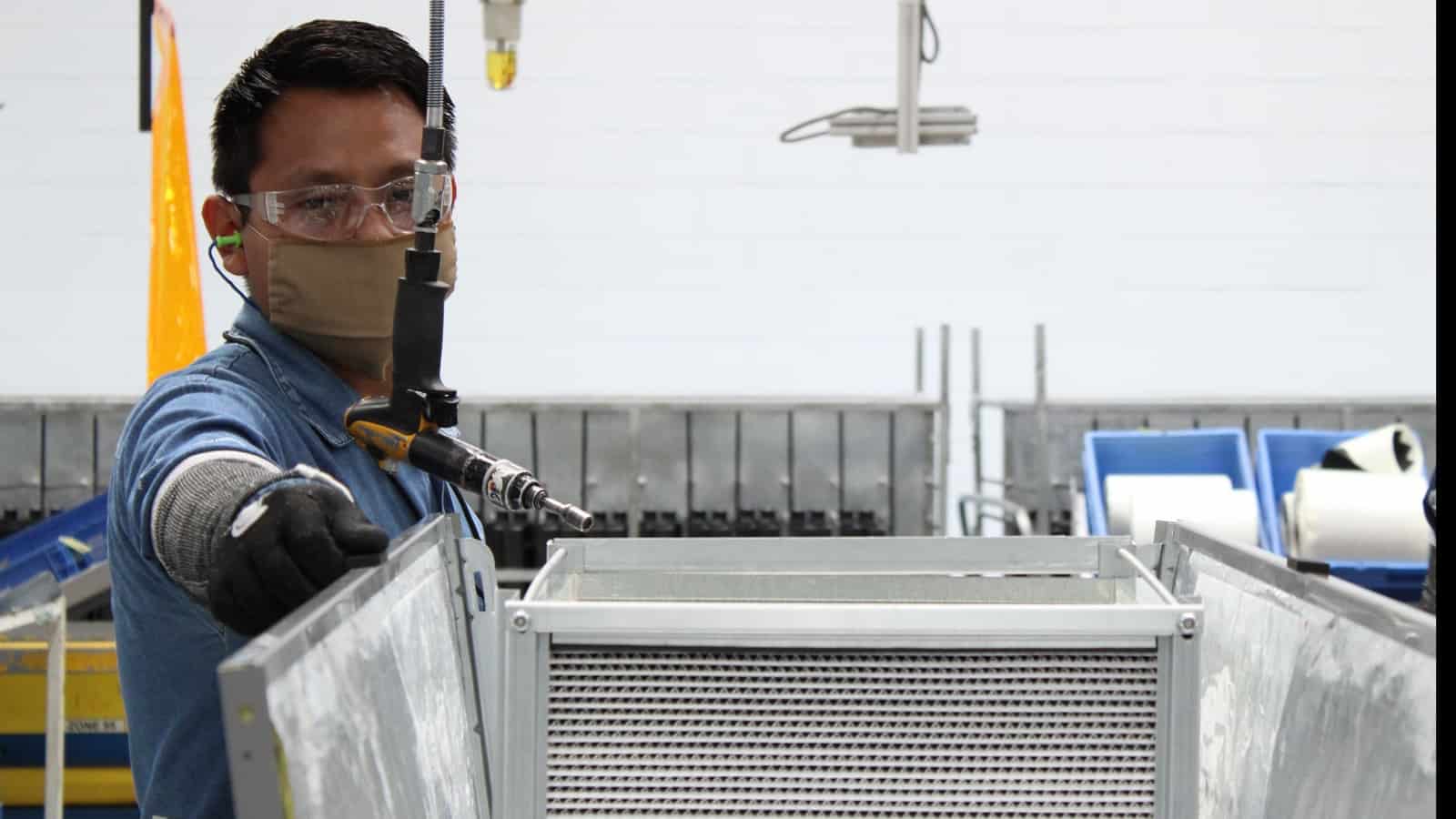
Are we paying enough attention to the cleanliness of indoor air? The Atlantic has a deep dive into the importance of ventilation, including what we know—and what we don’t—about how COVID-19 travels.
The rise of super-spreaders: As the article says, “The super-spreader–event triad seems to rely on three V’s: venue, ventilation and vocalization.” That means most events that tend to infect a large number of people occur in an indoor space—and especially one that isn’t well-ventilated—where people might talk or sing. One list of super-spreader events includes only a single event categorized as outdoor transmission—out of more than 1,200 events.
The article raises important questions—such as whether reopening schools safely requires the installation of air filtration systems and whether we should be looking at indoor and outdoor transmission as different problems to solve. Read the whole thing.
The manufacturing angle: NAM.org recently profiled Carrier Global Corporation, a Florida manufacturer of heating, ventilation and air conditioning systems, which created a portable air-cleaning device that can convert normal hospital rooms into air isolation rooms. The company also hopes its OptiClean devices will be used in homes, businesses and other facilities in need of safer air.
Others in the market: In addition to Carrier Global Corporation, Trane Technologies plc and Honeywell International Inc. are, according to a recent report in Bloomberg, “offering everything from air-monitoring sensors to portable filter machines to help make up for deficiencies in ventilation.”
Two Manufacturers Make Personal Boxes of PPE
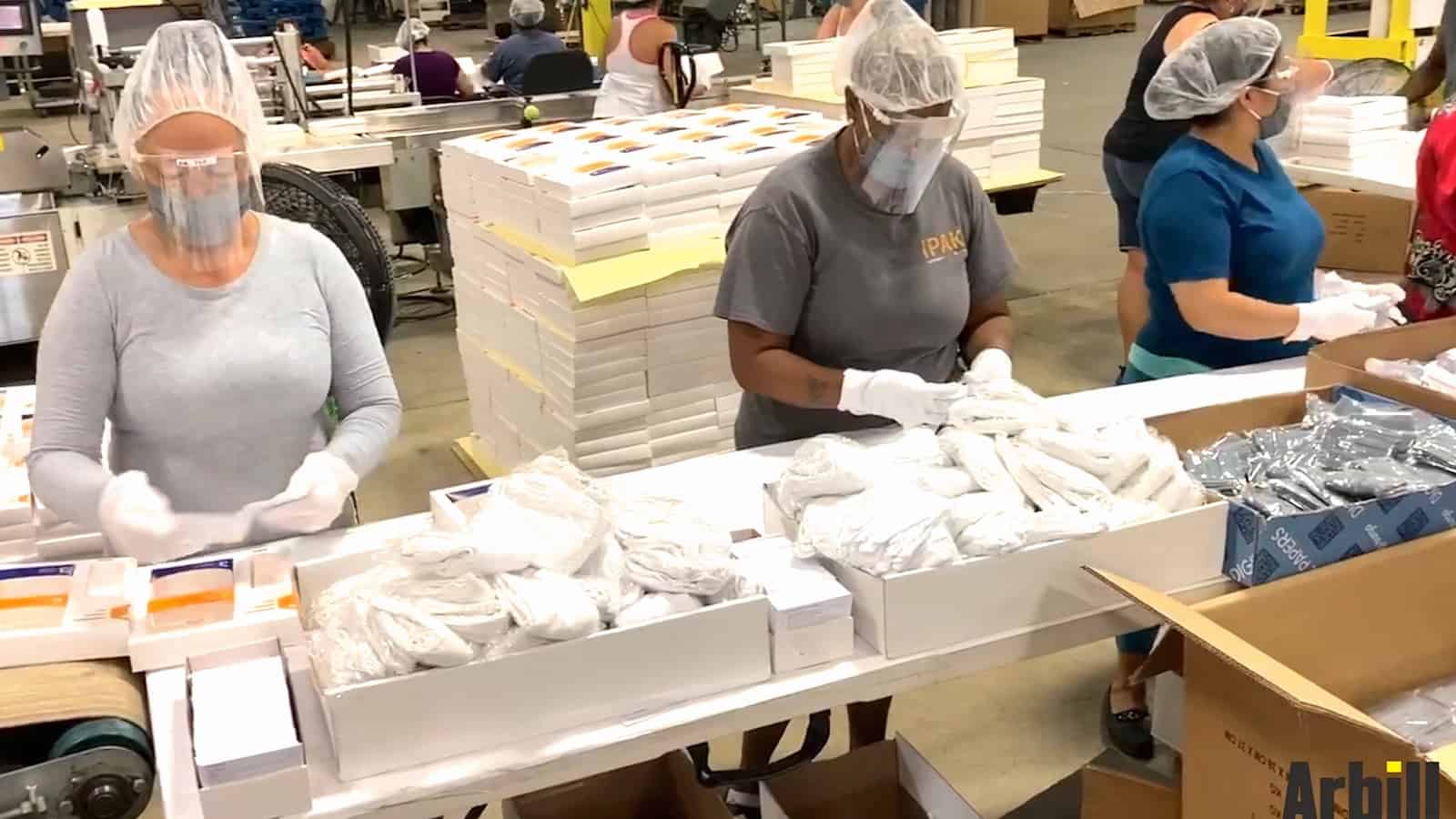
On a long flight home from a women’s business conference, Arbill CEO Julie Copeland and IPAK CEO Karen Primak fell into conversation about being mothers, CEOs, entrepreneurs and getting it all done. So when the COVID-19 crisis began, the two leaders—now good friends—knew they were the perfect collaborators to make an innovative safety product: a personal kit full of protective gear.
The idea: Though Arbill has a 75-year history of making and distributing safety products for industrial workers, when the pandemic hit, the company started thinking about protecting people in their everyday lives. It decided to produce an easy-to-ship kit of essential products, which employers could brand and purchase for their workers and customers—for use at home as well as at work.
The kit: Arbill’s team thought that shipping out bulk product was too impersonal. So IPAK, as a specialty packaging company collaborated with Arbill to package the protective products in a retail-like box. According to customers, employees appreciate the tailored presentation of the kit, which includes:
- Cloth masks: Arbill’s antimicrobial fabric masks, which protect users from particles as small as three microns, and can be washed over 50 times without losing their effectiveness. The masks also have high testing scores for breathability and are extremely comfortable.
- Cloth gloves: Instead of disposable gloves, Arbill developed a washable and reusable option for everyday use.
- Sanitizer: Arbill produced sanitizer that can be used on hands and surfaces, based on CDC recommendations.
Special delivery: Hundreds of thousands of these safety kits have already shipped to customers across the country. With millions of masks already made, and new orders in production, it’s clear these products have hit the mark.
The last words: “IPAK’s ability to create custom packaging helped us take the industrial product category of safety and make it personal,” says Copeland. “The Truline Safety Kit now provides companies a wonderful way to connect with their employees. It’s compassionate, sensible and safe.”
“IPAK was open during the heat of the pandemic in NJ,” explains Primak. “7 percent of our workforce was infected before our governor declared a state of emergency in March. As an essential business, we were permitted to stay open…but the only way I would stay open was with the right protective products. Partnering with Julie and Arbill allowed me to protect IPAK personnel as well as help other companies protect their own employees. Since we have been using the fabric face coverings, we have not had another case of COVID.”
Can Antibody Find Me…A Treatment for COVID-19

Manufactured antibody treatments could be the next big thing in the fight against COVID-19, Reuters reports. The therapy is often used against illnesses like cancer, and a range of biotech companies are working together to test this approach.
Who’s involved: Several companies have been allowed by the U.S. government to combine resources to manufacture supplies, should any of the companies’ drugs succeed. Those companies include Eli Lilly and Company, AstraZeneca, Amgen and GlaxoSmithKline.
Meanwhile, The Wall Street Journal (subscription) reports on a Lilly study involving antibody drugs in nursing homes.
- The study, which aims to enroll up to 2,400 subjects in nursing homes and other long-term care facilities, is intended to test whether the company’s antibody drug can reduce rates of infection.
- If the study is successful, Lilly hopes its drug could receive government approval by the year’s end.
Go deeper: Revisit our recent writeup of an important new study on America’s effective policies for pharma development—and how these should be preserved.
Wearables Could Predict COVID-19
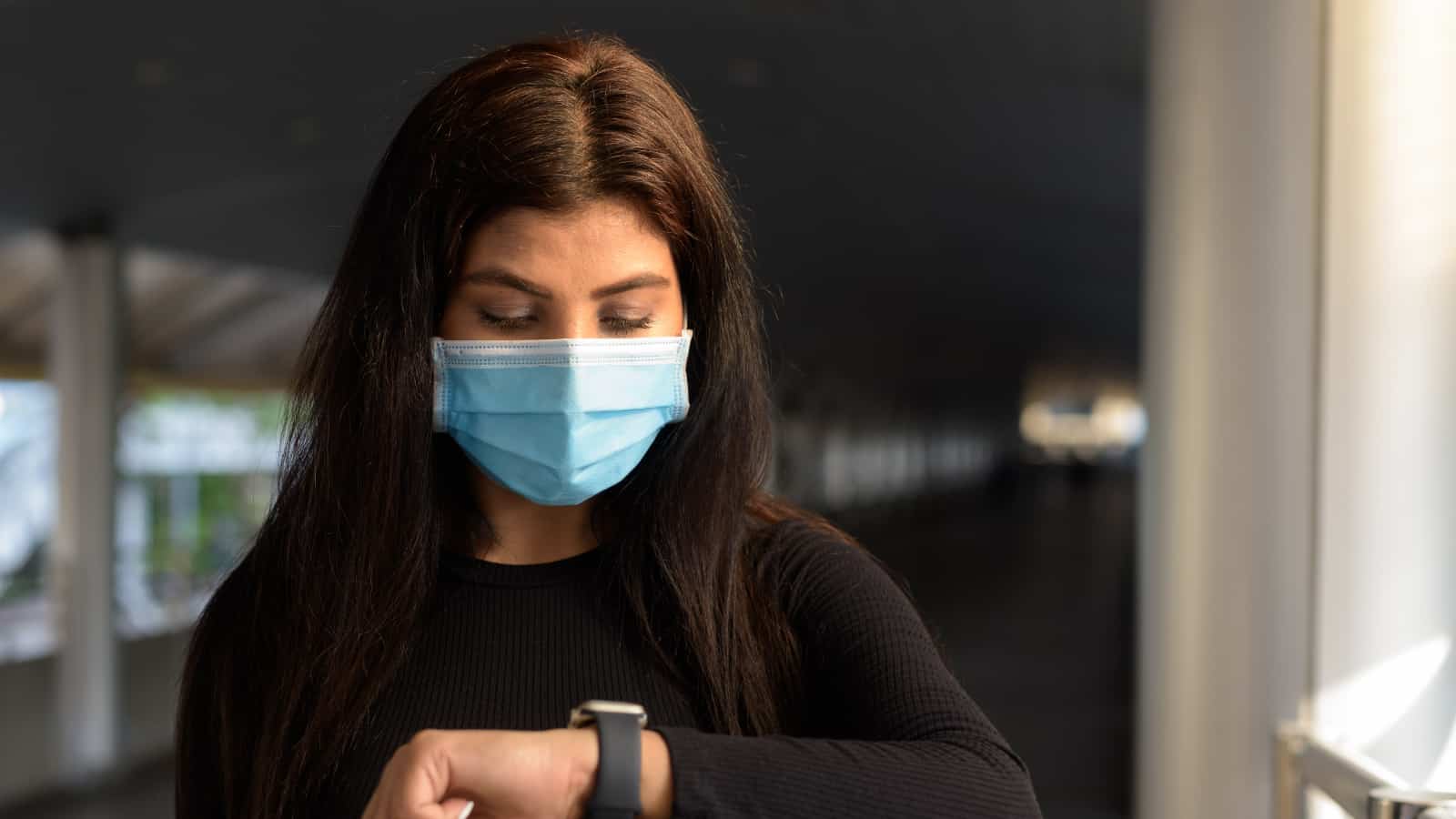
Smart watches and smart rings are the newest COVID-19 detectors, according to The Wall Street Journal (subscription). Devices like Oura rings, Fitbits, Garmin fitness bands and Apple Watches pull in vital information that may predict an infection.
How it works: Tech companies are taking in wearable sensor data from smart sensors on both healthy people and those afflicted by COVID-19, comparing results and looking for patterns. They’re hopeful that they can use this information to create artificial intelligence that could alert people with early signs of the virus.
The metrics: There are a range of measurements that might help to detect COVID-19 early on, including:
- Temperature tracking, which can help give early warnings about possible fevers;
- Heart-rate tracking, which can reveal an infection early; and
- Blood oxygen and cough tracking, which keeps an eye on specific COVID-19 symptoms.
Go deeper: Independent testing laboratory UL is at the forefront of these developments, and we recently talked to one of its leaders about how it’s helping to get such devices to market. Read the whole thing.
Manufacturing Activity Rebounds, Reaching its Highest Level in a Year
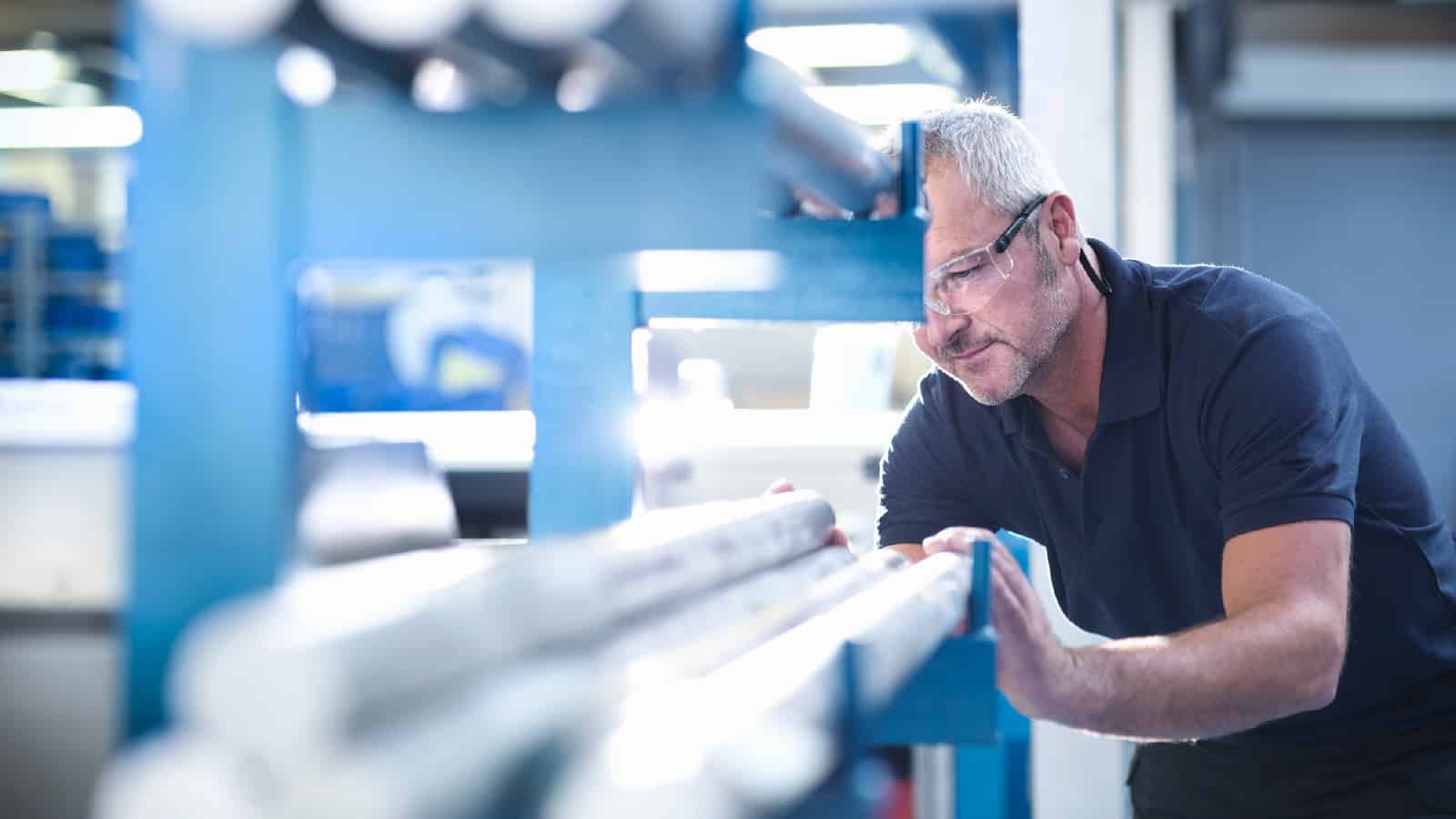
In some good news, an Institute for Supply Management survey released on Monday showed U.S. manufacturing activity reaching its highest level in more than a year, according to Reuters.
- The index of national factory activity reached 54.2 in July—up from 52.6 in June. A reading above 50 indicates growth.
- New orders increased to 61.5 from 56.4 in June—the highest since September 2018.
But don’t break out the party hats yet. The resurgence in COVID-19 across the United States could halt manufacturers in their tracks, which is why face coverings and other precautions remain critical.
Meanwhile, we’re seeing a reduction in construction spending, which dropped 0.7% in June after decreasing 1.7% in May. More discouraging numbers included the following:
- 0.7% drop in spending on private construction
- 1.5% loss in spending on residential projects
- 0.7% drop in spending on public construction projects
NAM Chief Economist Chad Moutray has the numbers for manufacturers: “After declining for six straight months, private manufacturing construction spending rose 1.7% from $70.86 billion in May to $72.07 billion in June.”
Related: In another milestone, New York City retail rent fell below $700 for the first time since 2011, according to CNBC. With fewer people shopping in retail environments, rents are dropping, and retail stores are reevaluating the way they serve the public.
The Way We Live Now
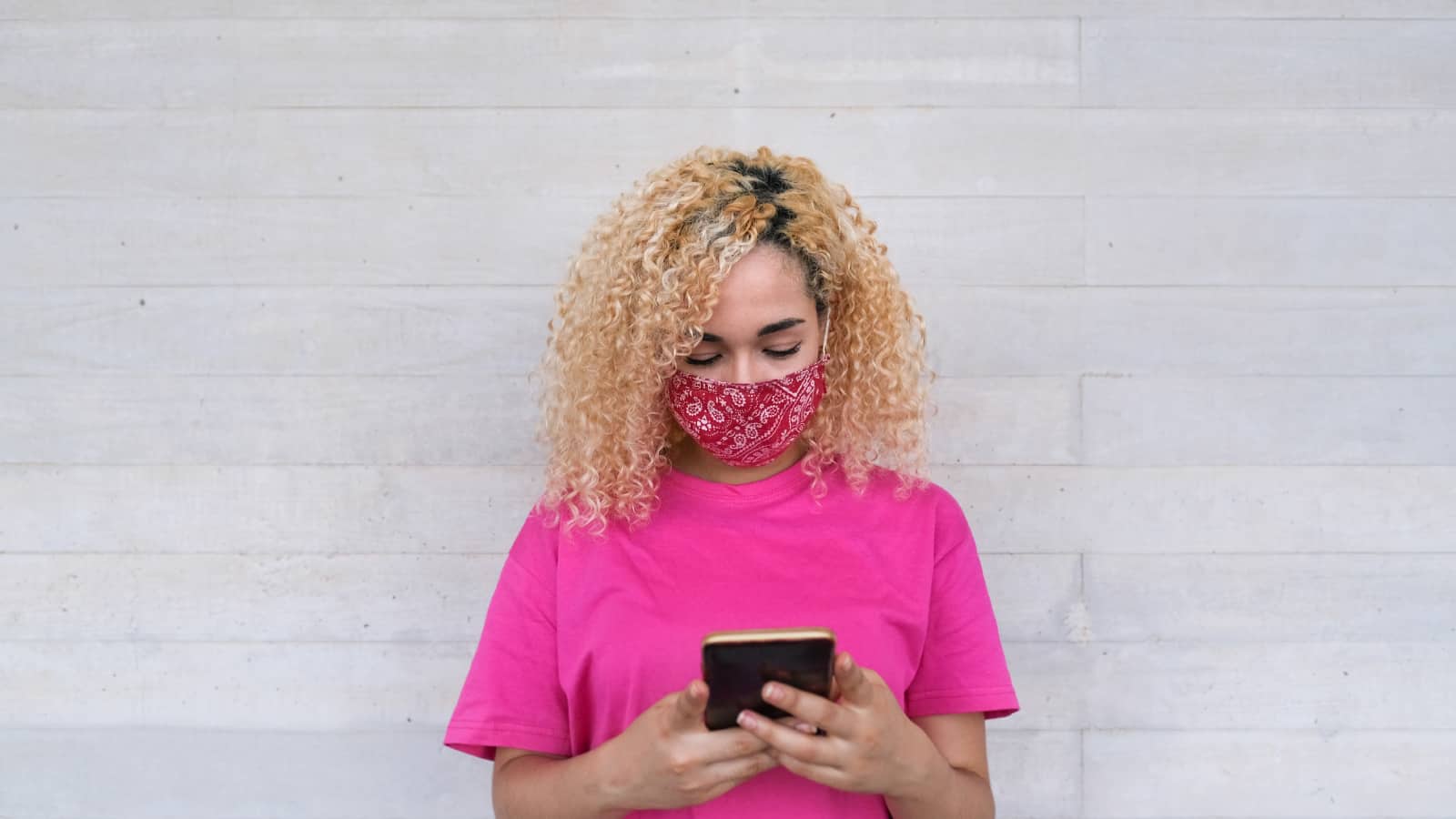
In honor of Friday, here are some interesting and amusing stories about life under COVID-19 and in this generally surreal year of 2020.
Pixelated pilgrimage: The annual Muslim pilgrimage to Mecca has been restricted due to COVID-19, so many people will be unable to go. But it wouldn’t be 2020 if enterprising developers weren’t trying to create a virtual hajj.
Fashion masks: You know you need to wear a face covering (if you’ve been within a lightyear of the NAM’s Creators Respond communications campaign, that is), but who says it has to be a boring, scratchy surgical mask? What about a mask cover made of pearls? Or a mask that “serves as a combination walkie-talkie, personal secretary and translator”? If you’re curious about your options, The New York Times (subscription) has you covered.
Bioprinting: If you can believe it, researchers are 3D-printing “tiny replicas of human organs—some as small as a pinhead—to test drugs to fight Covid-19,” according to The New York Times (subscription).
And last, if you’re looking to distract yourself from earthly woes:
- NASA’s latest mission to Mars is on its way. The rover Perseverance and helicopter Ingenuity were launched yesterday morning.
- The Pentagon’s U.F.O. Unit will start telling the public some of what it’s found.
Cyber Criminals Take Advantage of COVID-19

The internet may be saving our sanity (somewhat) with animal videos and Zoom chats . . . but there is a downside. With so much more happening online—such as retail and banking, not to mention all that working from home—hackers have a lot more targets.
The data depressingly bears that out:
- Large data breaches have skyrocketed by 273% in the first quarter of 2020, according to data from cloud computing company Iomart.
- Ransomware is up 90%, according to VMware, while attacks that destroy data or networks have risen 102%. And last, “island hopping,” in which criminals infiltrate one company in order to reach its partners or clients, is up 33%.
And here’s a worrying wrinkle: according to Iomart, manufacturing is one of the hardest-hit sectors.
There can be a grim benefit to cyberattacks, in that companies can learn from others that have already survived. To that end, aluminum manufacturer Norsk Hydro’s experience with a massive ransomware attack last year provides a number of (very) hard-earned lessons. From Bloomberg Businessweek (subscription):
- After the attack, the company had to make sure its employees got paid—but banks wouldn’t connect digitally with the company due to fears of cyber infection. So one executive, at Hydro’s Brazilian location, copied the previous month’s paychecks from their external payroll system, weeding out employees who had left or been fired.
- At a Pennsylvania plant, which lost access to corporate email and to the software that organizes its orders, employees received orders on their personal accounts. Then, having dug some old computers out of storage, they printed out the forms and distributed copies on the floor.
- At headquarters, Hydro had to rebuild their entire network. They were so worried about keeping these plans safe that they barred cleaning staff from coming into the room.
Hydro’s leaders consider themselves lucky to have only lost $60 million to the attacks, which unfortunately tells you a lot.
NAM with a plan: Though manufacturers should certainly prepare for the worst, they can also take many steps to minimize, if not eliminate, the danger. The NAM provides many cyber-related resources for members, including most recently a new cyber-insurance program called NAM Cyber Cover.
And here’s good news: the NAM’s Cyber Forum, cosponsored by PwC and eSentire, is on for the fall, in a virtual format. It will be from 11:00 a.m. to 1:00 p.m. EDT on four Thursdays in a row: Oct. 1, 8, 15 and 22. To learn more, email [email protected].
